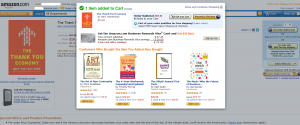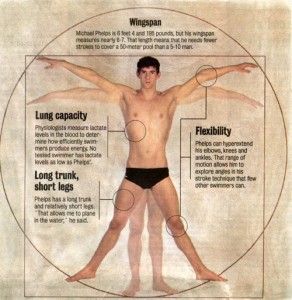Small Things Yield Big Rewards
January 18th, 2011I once read in a book that an individual is less likely to sue a doctor if the individual likes the doctor. That makes sense, as people give a larger amount of room for error, in general, for people they like compared to people they do not like. The element that makes this possible is trust. One trusts a doctor that they like whereas if one does not like a doctor they are more likely to be skeptical of answers, treatments, and suggestions.
The one thing that I feel like people fail to realize is what builds this sense of trust, in particular in the work environment. Building that trust with people is a critical life skill because you can more often pick your friends than you can pick your coworkers or clients. And this is not about a fake trust or a fake relationship. This skill is about truly adding value to a conversation, project, or company. When a person can do that out of genuine interest for the people they are interacting with they ensure that their friends, not coworkers, are there when they slip up.
So how does one build that trust? The answer is that the biggest differences between people are the smallest of things. This is because it is the smallest of things that can really make a difference. They all add up and most people only pay attention to the overall feeling of ‘nice’ or ‘not nice’, not realizing or even being able to articulate why they feel that way (“he’s just a good guy”). The memory that most demonstrates this and sticks in my mind was right after I got my new (used) car. I was pumped. It was my first ‘nice’ car; a slight splurge because I enjoy driving. I couldn’t wait to take my coworkers for a ride in it. I tried to think of what they would notice first. The all-wheel drive? The jump from the twin turbo engine? The leather seats? Any of the obvious ‘nice’ things? But then my friend got in the car and started fidgeting around with stuff. Pressing buttons and testing the hanger-hooks and handles above the door.
I thought to myself “What is he doing? Look at all the obvious nice stuff!” And then he looked at me with this smile and said “the buttons have that satisfying click when you press them and your door handles have an elegant slow-retract to them. Nice.” Now, he was being a bit sarcastic with his remark, but it stuck with me. Those are the sorts of things that, while largely ‘unnecessary’ are the exact things that make the car ‘nice’. The engine, leather seats, nice rims…these are all things that could be put on or in virtually any car without thought. But the satisfying, tactile *click* when I press a button or the softness of the cup holder opening up. These are things that are small, one could say insignificant, but simultaneously the fine touches that truly make the car ‘nice’. Things that are not obvious, not hard, but take a definite thought to put them in place
Likewise, it is the small things that make the person, even in the business world.
- If someone starts a thought and gets cut off by another, remember and ask what they were going to say
- Listen for bits of personal details during a conversation and remember to follow up on it later
- Set up a .cal list in Outlook for your company holidays (google it) and send it out to your coworkers
- Make sure to have lunch with different groups of people to learn more about them
- Sort the pages that are sitting on the printer
- Make the coffee when the pot is about empty, even if you didn’t have any
- Have that homemade treat if the person doesn’t often bring treats in
- Stop by and thank that person for bringing it in, even if it was not homemade
- Pass along an article you read to show that you’re thinking beyond your own position
- Ask about a specific item in a person’s desk/cube/office (you’d be surprised how little people do this)
- Say that you will get back to a person, even if you don’t have the time to fully answer now
This is just a short list of small things one could do at the office. They are all small, but they all take effort. And don’t be fooled, they take lots of effort to do all of these things all of the time. But as my dad likes to say “the only difference between work and play is your definition.” So work to redefine your view and these small things that take lots of effort will become natural and maybe the next time you sit down in someone’s new car you’ll notice the satisfying *click* their buttons make.
Do you take time to do the small things?
This has been a Thought From The Cake Scraps.




